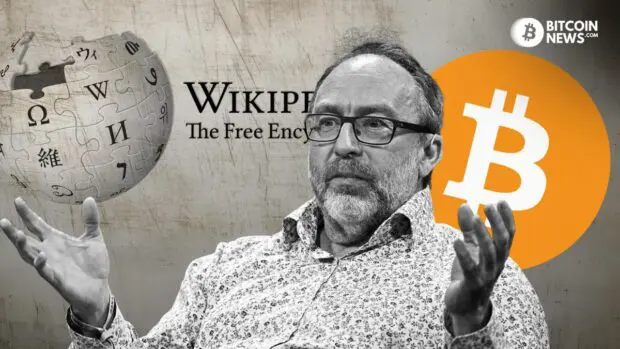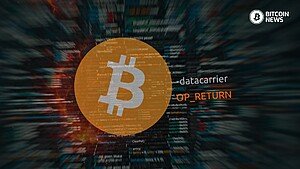Wikipedia founder Jimmy Wales sparked a heated debate within the Bitcoin space with his recent comments comparing traditional banks to Bitcoin. His remarks triggered swift responses from notable figures in the Bitcoin community, shedding light on contrasting perspectives regarding financial systems.
Jimmy Wales’ Provocative Comparison
Jimmy Wales expressed his opinion about Bitcoin in a recent tweet, stating:
“I forgot my bank password and lost my entire net worth. No, actually, that didn’t happen, because banks work and bitcoin doesn’t.”
This statement quickly went viral, drawing the attention of prominent figures within the Bitcoin space.
Bitcoin Community’s Swift Reactions
Wales’ comments didn’t go unchallenged. Figures like Samson Mow, CEO of JAN3 were quick to point out how Wikipedia could have made profits with bitcoin, instead of asking for donations constantly.
Eric Voorhees, CEO of ShapeShift has also been vocal, countering Wales’ assertion. He highlighted the missed opportunity for Wikipedia to invest in Bitcoin earlier, suggesting that such an investment might have negated the need for continuous donation drives on the platform.
Dan Held, an educator in the realm of Bitcoin and previously holding the position of Growth Marketing Director at Kraken, maintained brevity and clarity in his remarks.
Unexpectedly, a disclosure by X user Walker brought to light that Wales might still have some bitcoin, referring to his 2014 tweet. Walker is the host of “THE Bitcoin Podcast.”
Bruce Fenton also responded to Jimmy Wales’ post by suggesting a return of all previously received bitcoin donations. Wikimedia accepted bitcoin donations from 2014-2022.
The Canadian Bitcoin educator, BTC Sessions, shared a graphical representation depicting the depreciation of the USD value over time, emphasizing that the safeguarding of one’s net worth goes beyond mere reliance on a password.
Insights Beyond Financial Gains
Yves Bennaïm’s response sarcastically praised the unique perspective while urging an exploration of broader financial issues, including banking exclusions, inflation, and systemic limitations.
Investor and educator Lyn Alden emphasized the pernicious impact of inflation on savings, citing a distressing anecdote of a Lebanese doctor losing 95% of their net worth due to hyperinflation within the traditional banking system.
The debate widened to include the unbanked population. Brandon Quittem pointed out that over a billion people worldwide lack access to traditional banking systems, underscoring the limitations faced by many due to financial exclusions.
Contributors like Alex Gladstein highlighted the limitations of traditional banks, emphasizing that their reliability is contingent upon living in a country with rule of law and a strong currency. They raised concerns about access and functionality for the majority of the global population.
Bit Paine raised an interesting point, suggesting that the accessibility of wealth without requiring a password isn’t an advantage but a flaw, indicating a potential vulnerability in the system.
Wikimedia Foundation and Bitcoin
Wikimedia started accepting bitcoin donations in 2014. The Wikimedia Foundation released a statement back then, stating that they would accepts bitcoin donations, adding it to the existing 13 payment methods. This decision was influenced by community requests and recent guidance from the US Internal Revenue Service.
It stated that the foundation would employ Coinbase services, allowing for bitcoin donations to be immediately converted to U.S. dollars, simplifying the process. The Foundation aims to ensure donating is accessible and straightforward for supporters worldwide.
In 2022, the Wikimedia Foundation stated that it would cease accepting Bitcoin donations following a community request after a three-month discussion. The decision, reportedly backed by over 71% of 400 users through a poll, stemmed from a proposal that viewed Bitcoin and digital assets as “inherently predatory” investments and potentially conflicting with the foundation’s dedication to environmental sustainability.
Wales’ comment spurred a multifaceted discussion on the efficacy, inclusivity, and limitations of traditional banks versus the potential of Bitcoin. The diverse responses underscored the complexities and real-world implications of these financial systems, contributing to a broader conversation on global finance and accessibility.
This debate reflects ongoing discussions within the Bitcoin community, highlighting the need for nuanced perspectives and a deeper understanding of the evolving landscape of financial autonomy, efficiency, and accountability.










